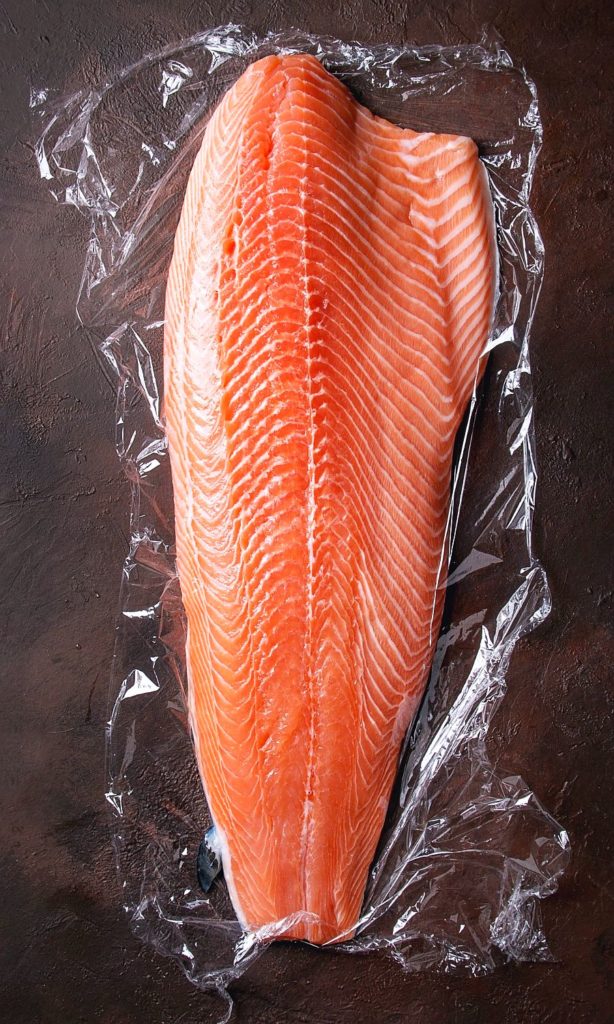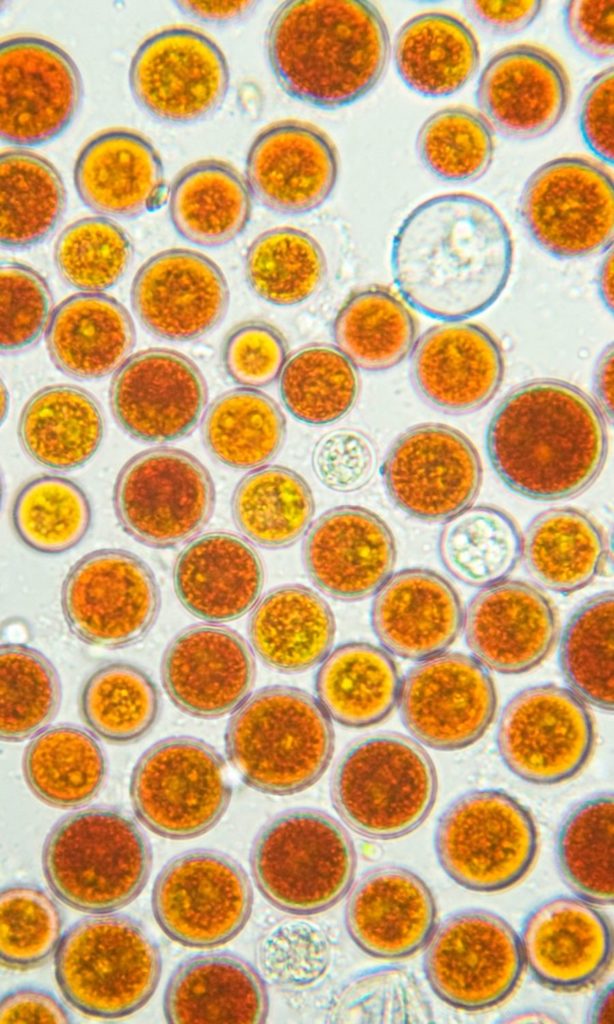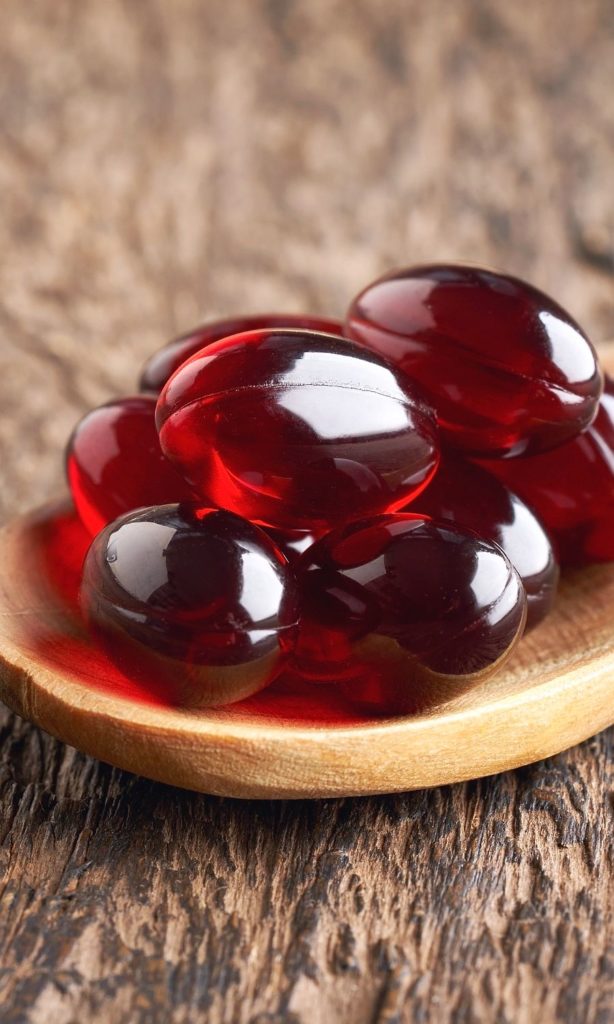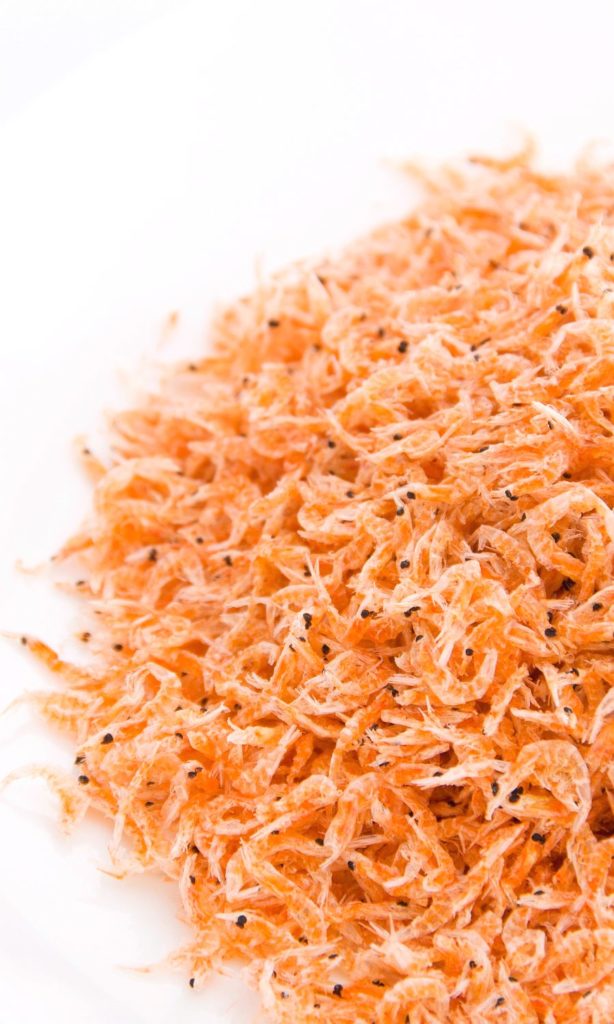Astaxanthin is a natural pigment found in algae, salmon, and other red seafood. Astaxanthin for dogs has potent antioxidant properties and is linked to potential health benefits.
Contents
What is Astaxanthin?
You may have heard about astaxanthin, a powerful antioxidant.
It’s a fat-soluble ketocarotenoid pigment approved as a color additive in fish feed to enhance the color of salmon and trout.
Xanthophyll astaxanthin, which is commonly used in aquaculture, is one of the most expensive and important industrial pigments[7].
Carotenoids are found primarily in fruits and vegetables. However, unlike beta-carotene, lycopene, or lutein, natural astaxanthin is found in red-colored seafood such as lobster, crab, krill, shrimp, and salmon.
It gives these foods their vibrant pink and red hues and helps stabilize the omega-3 fatty acids in these foods.

But astaxanthin is more than just a pigment.
Research has revealed its potential as a very effective antioxidant, helping to neutralize harmful free radicals and support overall health.
Due to having the strongest antioxidant properties among carotenoids and showing health benefits, natural astaxanthin is used in nutraceuticals and animal food[3].
Antaxanthin is thought to be one of nature’s most powerful antioxidants. It’s reported to be even more effective than that of beta-carotene, lutein, or vitamin E.
For its use in aquaculture, it can be produced synthetically. But supplements should only use natural astaxanthin.
The most important natural source of astaxanthin used in supplements is the microalgae Haematococcus pluvialis.

Astaxanthin: Benefits for Dogs?
If you’re looking for a natural way to support your furry friend’s health, you might consider adding astaxanthin to their diet.
With its very potent antioxidant properties and potential health benefits, astaxanthin is getting more popular with dog owners.
So far, research suggests that astaxanthin may have positive effects on the overall health and well-being of dogs.
Natural sources of astaxanthin include some algae and yeasty, salmon, trout, krill, shrimp, or crab. If you want to feed astaxanthin-rich foods, wild Pacific salmon is probably the best choice.
And astaxanthin is also available as a supplement.

Studies found that astaxanthin may benefit dogs in many ways, from improving immune function and reducing inflammation to promoting healthy aging and protecting against oxidative stress[2,6].
Research suggests that astaxanthin may help prevent diabetes, obesity, and cardiovascular or neurodegenerative disorders in dogs[4,5].
A 2018 study revealed that astaxanthin supplementation at a rate of 0.3 mg/kg body weight per day can increase antioxidant and liver function in both healthy and obese dogs[4].
Astaxanthin is of particular interest because it is a fat-soluble antioxidant. This means that it can reach cell membranes, including mitochondrial membranes.
As a result, astaxanthin is able to neutralize free radicals right where they are very often formed, preventing them from causing further damage to healthy cells and tissues.
While more research is needed to fully understand the potential health benefits of astaxanthin for dogs, the available studies provide encouraging results.
While more research is needed to fully understand the extent of these benefits, the current evidence suggests that astaxanthin can be a beneficial supplement for dogs.
Is Astaxanthin Safe For Dogs?
As a food additive, astaxanthin is thought to be generally safe[1].
It’s ok to feed salmon to dogs, obviously. And it’s probably also ok to use a supplement for dogs when given in appropriate amounts.
However, synthetic and algal astaxanthin supplementation has shown evidence of some liver toxicity in female rats and human cell studies[8].
While no adverse effects were observed in male rats, mice, or dogs, the long-term effects of synthetic astaxanthin on health are unknown[7].
Look for supplements derived from natural sources like microalgae or feed some wild salmon or krill. It is important to note that natural astaxanthin supplements can be costly.

If you decide to give your dog an astaxanthin supplement, we recommend talking to your vet about the right dosage for your dog’s individual needs.
Because there can be too much of a good thing!
And astaxanthin should not be considered a substitute for other important aspects of a dog’s life, such as regular exercise, a healthy diet, and veterinary check-ups.
Further Reading
[1] CFR 21 § 73.35 Astaxanthin.
[2] Park et al. Astaxanthin uptake in domestic dogs and cats. Nutr Metab. 2010. https://doi.org/10.1186%2F1743-7075-7-52
[3] Naguib. Antioxidant activities of astaxanthin and related carotenoids. Journal of agricultural and food chemistry. 2000. https://doi.org/10.1021/jf991106k
[4] Murai et al. Effects of astaxanthin supplementation in healthy and obese dogs. Veterinary Medicine. 2019. https://doi.org/10.2147/VMRR.S186202
[5] Park et al. Astaxanthin modulates age-associated mitochondrial dysfunction in healthy dogs. Journal of Animal Science. 2013. https://doi.org/10.2527/jas.2012-5341
[6] Boon et al. Dietary astaxanthin enhances immune response in dogs. Veterinary Immunology and Immunopathology. 2011. https://doi.org/10.1016/j.vetimm.2010.12.004
[7] Stachowiak & Szulc . Astaxanthin for the Food Industry. Molecules. 2021. https://doi.org/10.3390/molecules26092666
[8] EFSA Panel on Nutrition, Novel Foods and Food Allergens. Safety of astaxanthin for its use as a novel food in food supplements. EFSA Journal. 2020. https://doi.org/10.2903/j.efsa.2020.5993
[9] Ambati et al. Astaxanthin: sources, extraction, stability, biological activities and its commercial applications – a review. Mar Drugs. 2014. https://doi.org/10.3390/md12010128
